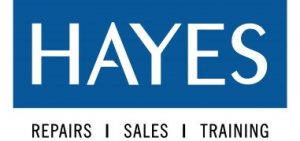Avoid Potential HIPAA Compliance Breach by Disengaging from Gossip
Gossiping about others is a time-consuming habit that can be positive, neutral, or negative. The average person spends 52 minutes per day talking with friends and family members about other people’s lives – an hour of wasted energy! That’s over 4 days each year spent on someone else instead of yourself.
Conversations between co-workers are typically no issue, but in a dental practice that standard doesn’t always apply. Of course there will be some instances when it is necessary to discuss specific patient’s diagnosis and treatment plans for example medications or the like; sometimes these conversations could appear as information about possible contagion.
Unfortunately, gossip can have legal repercussions. This is especially true in healthcare.
Gossiping lowers staff morale and damages trust- but it also has severe consequences when these conversations take place on the job.
Talking about other patients can be fun and convenient, but it’s always best to keep those conversations off-limits. You never want this time-killing activity to cause a loss of trust or lost job due to the lack of privacy in your office that comes with talking about others
It’s hard to keep all of your work data safe. Every day, you’re faced with the struggle between what is right and wrong as a worker in the health industry so that HIPAA violations don’t happen. The most common way for these breaches occur when employees gossip or let any information leave the workplace without authorization which will cause an investigation into whether it was intentional or not.
Gossip is so easy to do because we all have a natural desire for it. It’s difficult, though, not to overshare when talking about other people in conversation or at work with clients and colleagues alike. Have you ever heard of HIPAA violations? Read on if this sounds like something that would happen around the office.
Gossip is often a natural thing that just happens in conversation. It’s easy to fill each others’ ears with stories of other people, but it can be hard to catch yourself doing so or recognizing what qualifies as oversharing.
Here are some examples of HIPAA violations when gossiping at work so you best avoid them:
Have a designated and private area for patient discussion
With so many public spaces in a dental office, it is important to be mindful of where you are discussing patients. This includes gossiping about them with other staff members and even if the conversation is on-topic for the situation at hand – such as reviews or reports that need to happen outside of patient work areas.
Avoid sharing patient stories even outside of work
You should not share any patient stories at work as you never know who someone else might tell or who they might know. Maybe one of your patients is someone that your family knows and if this person finds out, it will be a major embarrassment to get home with the news for them.
Refrain from venting or sharing in social media about your patient encounter
An article from the American Medical Association says that if you’re going to talk about your patients, don’t do it on social media. With all of this information floating around online, there’s a lot more room for mistakes and people are less likely to not understand what was said in writing or over text messages. Take care with anything you post because once these things go live they can be seen by anyone who happens upon them even years later when something might have changed dramatically since then.
Staying HIPAA Compliant
Sometimes people will specifically ask you about patients. It can be other employees genuinely wanting to know how they’re doing, or they’re just being nosy. Other patients also ask out of curiosity and some even just want hope from another’s experience.
You know it’s not always a good idea to talk about someone else, but you should keep in mind that if they don’t understand why they can and cannot discuss their situation, there’s the potential for them feeling hopeless or fearful.
This could make your client feel exposed and unconfident without reason – which is never beneficial for therapy.
As a dental practitioner, it’s your responsibility to keep all patient information confidential. That includes not telling anyone about how that one time you had the worst neither best patient encounter.
Hayes recommends an annual Dental HIPAA Training for dentists and staff alike — so both can learn more about what constitutes protected health information (PHI) while also ensuring confidentiality in their day-to-day work environment.
You may also check our other training links below:
Hayes also specialize in instrument sharpening & repairs. Our experienced technicians have decades of experience working with all major brands of dental handpieces including:
A-dec | Beyes | Bien Air | Denticator | Hall | Henry Schein | Impact Air | Kavo | Lares | Midwest | Morita | Nobel Biocare | Nouvag | NSK | Patterson | Schein Master | Shamrock | Star | Strauman | Stryker | W&H | Young | American Eagle | HU Friedy | Nordent | PDT




